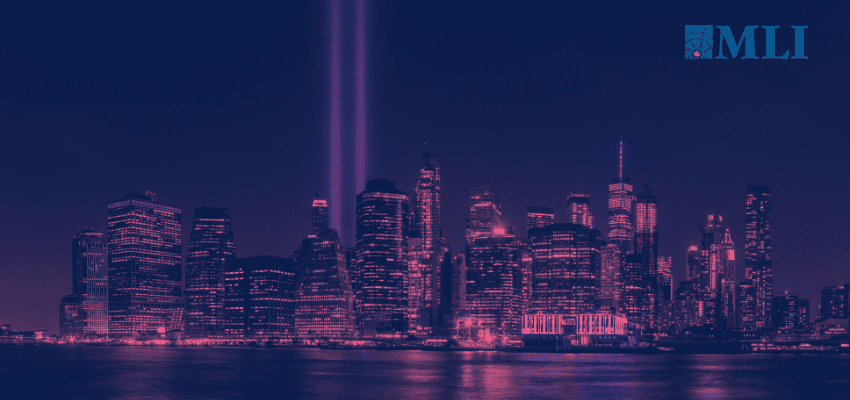This article originally appeared in the National Post.
By Mohammed Rizwan and Raheel Raza, September 10, 2024
As we prepare to navigate the almost intersecting anniversaries of 9/11 and October 7, it feels like we have been on this roundabout for 23 years. ISIS-Hamas-Hezbollah-Houthi terrorism — including the killing of six Israeli hostages this past week — has been like a gruesome, never-ending horror show on loop.
The world is where it is after a grinding 23-year slog that saw a 20-year-long Afghanistan war, a bloody conflict in Iraq, another four years of having to endure ISIS terror in Iraq as well as in Syria, and a permanent low-intensity sideshow of Houthi violence in the Red Sea area. During all of this, Hezbollah (Iran’s proxy in Lebanon) kept reminding us not to count it out.
Fighting these Islamist terror groups was not the only challenge. Certain Jihadi elements in Pakistan also played a role in promoting extremism and violence, allegedly including their intelligence services and some senior military personnel. We saw how the U.S. and the West desperately doled out billions of dollars in an attempt to reform the madrassas — the religious seminaries in Pakistan that worked to produce jihadis. Unfortunately, much of that money ended up lining the pockets of the powers-that-be. Pakistan played a double game — which is why U.S. security experts deemed it a ”frenemy” (friendly enemy).
Terrorist ideology did not diminish because supportive Pakistani military elements and their terror proxies in Afghanistan stood to lose. The reform agenda of the West was denounced as something evil — beneficial to the West and harmful to Muslim society — with the assistance of lapdog media.
The situations in Iraq and Syria were a little different but produced the same results. These were less wars than firefighting missions without a clear end-goal. There was no bruising of terror ideology along the way.
After more than two decades we see the resurgence and rejuvenation of this terrorist ideology among a visible portion of Muslims. Is it because these Muslim populations don’t have political empowerment? The people of Gulf countries have zilch political rights, but they are largely happy and peaceful populations. Is it because of economic opportunities? Not sure. Because when we look at the recent behaviour of some Muslim people on our streets, where they are far better economically empowered than in the countries and societies they left behind, we see an ideologically charged crowd that doesn’t like any symbol of western values.
The examples of many in the Arab/Muslim diaspora in the West and Arab citizens of the Gulf tell us that lack of democracy and social development are not triggering their restless and violent behaviour. Despite all these years of attempting to combat terrorism, the radicalization of Muslim populations has become worse, not less, since 9/11.
Is it the Palestinian question that has triggered recent protesters? Again, no evidence. They don’t rise and protest human rights violations in their own home countries.
Let’s put this question in another way. Would these protesters be happy if Palestinians got their state? Still no evidence. Because for most of them, the demand is for all the land “from river to the sea,” which means they want Jews and Israel gone. If Jews agreed to leave and Israel was no more, would attacks against the West and Jews in other parts of the world end?
The answer is a big no.
Here’s the problem. Due to regressive education systems in the Muslim world, many of their populations live in a perceived glorified past. Many are indoctrinated as being culturally and religiously superior to the West — meaning Christian and Jewish cultures. They want to bring everyone else down so they can maintain their supremacy.
Fighting wars will not change this mindset. And democracy and social development will only work if someone wants them.
Amid the rise of woke-ism and political correctness, many are almost forgetting that 9/11 ever happened. The gen Z generation has no recollection of this horrific event.
The only thing the West can do is protect its communities and streets with strong law enforcement and promote Western values to immigrant communities.
Raheel Raza and Mohammad Rizwan are members of The Council of Muslims Against Antisemitism.. Raheel Raza is a Senior Fellow at the Macdonald-Laurier Institute.






